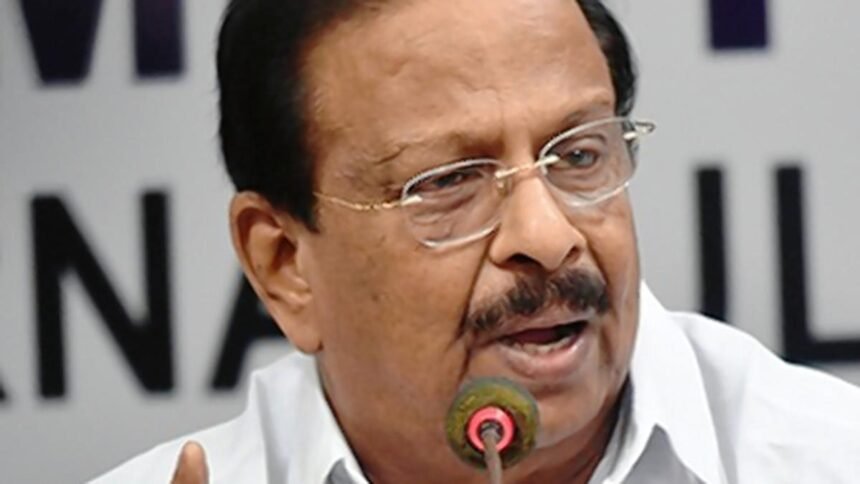Kerala Pradesh Congress Committee (KPCC) chief K Sudhakaran was arrested on Friday by the Crime Branch in connection with a cheating case. The prime accused in the case is Monson Mavunkal, a controversial antique dealer. Sudhakaran was later released on bail after several hours of questioning by the Crime Branch.
The arrest of K Sudhakaran, a prominent political figure in Kerala, has caused a stir in the state’s political landscape. Sudhakaran addressed the media after his release, expressing his faith in the judiciary and stating that he is prepared to face the case in court.
According to reports, the cheating case involves allegations against Monson Mavunkal, who is accused of fraudulent dealings in the antique trade. It is claimed that Mavunkal manipulated transactions and cheated several individuals out of large sums of money. The exact nature of Sudhakaran’s involvement in the case has yet to be fully revealed.
The Crime Branch, responsible for investigating the case, summoned Sudhakaran for questioning before deciding to arrest him. Following a lengthy interrogation, his arrest was recorded, and bail was granted. Sudhakaran’s supporters rallied behind him, expressing their belief in his innocence and claiming that the arrest was politically motivated.
Addressing the media, Sudhakaran stated that he trusts the judicial system and is confident in his ability to present his case in court. He maintained his innocence and expressed his willingness to cooperate with the investigation. Sudhakaran’s arrest has generated significant media attention, with political commentators speculating on the potential implications for the KPCC and its future leadership.
The arrest comes at a critical time for the Kerala Congress, as the party is already facing internal challenges and a loss of public support. Sudhakaran’s predecessor, Mullappally Ramachandran, recently resigned from his post, citing personal reasons. The party was hoping for a fresh start under Sudhakaran’s leadership, but this recent development has cast a shadow over his tenure.
Political opponents have seized upon Sudhakaran’s arrest as an opportunity to criticize the KPCC and question its integrity. They argue that the party’s claims of fighting corruption and promoting transparency have been undermined by the arrest of its chief. The opposition parties are likely to exploit this situation to gain political mileage, further complicating the KPCC’s efforts to regain public trust.
As the legal proceedings unfold, all eyes will be on the court’s decision regarding Sudhakaran’s culpability in the cheating case. If he is proven innocent, it could potentially boost the KPCC’s image and strengthen Sudhakaran’s position within the party. However, a guilty verdict could have severe consequences, not only for Sudhakaran personally but also for the KPCC’s credibility and political prospects.
In the meantime, the public will closely follow the progress of the case and await further developments. The outcome of this legal battle will not only determine the fate of K Sudhakaran but could also shape the future of the Kerala Congress and its standing in the state’s political arena.




